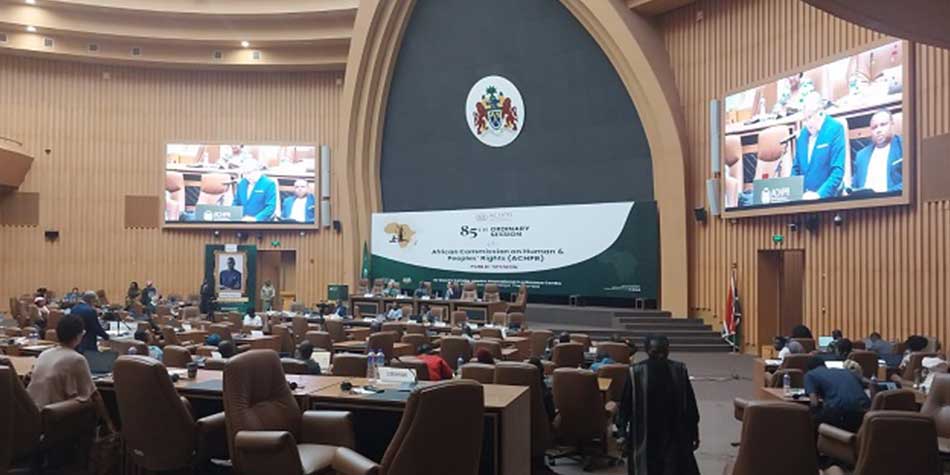
Adoption of Bill Allowing the Imposition of the Death Penalty for a New Crime.
Asia
Philippine House Bill No. 7814 provides the death penalty for a new crime under the 2002 Comprehensive Dangerous Drugs Act.
Adopted on March 2nd 2021, this Bill comes after years of President Rodrigo Duterte’s unflagging insistence to reintroduce the death penalty to the Philippines, despite the country having abolished the capital punishment for all crimes in 2006. CHR Commissioner Karen Gomez-Dumpit released a statement urging legislators not to pursue this bill.
The Reintroduction of the Death Penalty
The passage of House Bill No. 7814 a is an attempt on the part of the government of the Philippines to reintroduce the death penalty, who, under the leadership of President Duterte, has called for a return to the death penalty since his election in 2016. The bill is aimed at strengthening the country’s drug prevention and control. Section 20 of the bill provides a mandatory penalty of death for a new crime involving the use or implementation of a search warrant based on perjurious or falsified documents or planted evidence. There is also a presumption of guilt if the accused planter does not follow the investigation procedure under Section 19 of the bill. Not only do these provisions demonstrate intent for a broader introduction of the death penalty in the Philippines, but they prevent human rights institutions in the country from carrying out effective work.
The Commission on Human Rights (CHR) has “committed to tirelessly assail” the death penalty in the Philippines. Its reintroduction would violate international obligations made under the International Covenant on Civil and Political Rights and its Second Optional Protocol. Commissioner Gomez-Dumpit highlighted the lack of evidence proving that the death penalty is a deterrent on crime. It does not improve crime rates in countries that retain it, and it also creates further “problems in the disadvantaged, marginalized and vulnerable sectors of society.”
The CHR “most respectfully urge[s] our legislators to pursue bills that would address recovery from the pandemic. We are still in the middle of a pandemic – where thousands of lives have been lost and many lives are still at peril. While we await for the arrival of vaccines in the country, we appeal to our legislators to pursue measures that would allow us to recover not only from COVID-19 but also from the negative effects of the responses to quell it. The reintroduction of the death penalty will create more problems particularly in terms of livelihood that may be lost given the dire economic situation especially of the disadvantaged, marginalized, and vulnerable sectors of society. It may likely lead to the suspension or withdrawal of privileges under the Generalized Scheme of Preferences Plus (GSP+) Program with the European Union. We emphasize that many industries, most especially the agriculture sector, have benefitted tremendously under this trade agreement.”
The CHR in the Philippines also noted in the statement that they are ready to work with government to craft “human rights and evidence-based policies” to assure the rights of the accused and to affirm the universal right to life.
Providing for the ‘Presumption of Guilt’
The Bill in question would additionally provide for the ‘Presumption of Guilt’ for people accused of trafficking crimes and involvement with illegal drugs. The system of law in the Philippines adheres to the basic tenet that presumes a person is innocent until proven guilty. Commissioner Gomez-Dumpit highlights in her statement that this is in direct conflict with the constitution. “The presumptions of guilt in the bill goes against this right guaranteed for the accused under the Bill of Rights of our 1987 Philippine Constitution. We note that the bill provides for presumptions of guilt for people accused of being traffickers, financiers, protectors, coddlers and/or being involved in illegal drugs which we strongly believe to be patently unconstitutional”, stated Commissioner Gomez-Dumpit.
This element of Bill No. 7814 emphasises further the dangers of reintroducing capital punishment. The death penalty is an irreversible sentence, and no justice system is free from judicial errors. The ‘Presumption of Guilt’ provision compromises a person’s right to due process. With this bill there is an increased risk of an irrevocable miscarriage of justice.
Creation of Advocacy Brochures for the Philippines
As a part of the World Coalition’s larger project working with countries at risk of reintroducing the death penalty, the Coalition has been working closely with the CHR in the Philippines. An educational and advocacy brochure titled “Keep the Death Penalty Abolished in the Philippines” has recently been finalized in 13 languages, including 11 local languages of the Philippines and has been made available to organizations fighting a return of the death penalty. These brochures were created in collaboration with the CHR. They include the political history of capital punishment in the Philippines along with a detailed outline of reasons to keep the Philippines an abolitionist state, and a list of mobilising actions to take against its reintroduction. It is available in all 13 languages on the WCADP website now.
Photo by Mara Rivera on Unsplash.







